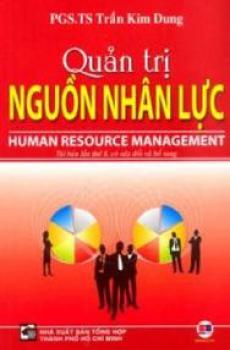The Psychology of Management
The Psychology of Management
Log in to download this book.
| Publisher | Chưa rõ |
|---|---|
| Accessible book producer | Public domain |
| Published year | 2005 |
| Coppy right | Chưa rõ |
CHAPTER I
DESCRIPTION AND GENERAL OUTLINE OF THE PSYCHOLOGY OF MANAGEMENT
Definition of Psychology of Management — Importance of the Subject — Purpose of this Book — Definition of Management — The Three Types of Management — Possible Psychological Studies of Management — Plan of Psychological Study Here Used — Underlying Ideas or Divisions of Scientific Management — Outline of Method of Investigation — Conclusions to be Reached.
CHAPTER II
INDIVIDUALITY
Definition of Individuality — Place of Individuality in Psychology — Individuality Under Traditional Management — Individuality Under Transitory Management — Individuality Under Scientific Management — Selection of Workers — Separating Output — Recording Output Separately — Individual Tasks — Individual Instruction Cards — Individual Teaching — Individual Incentives — Individual Welfare — Summary: (a) Effect of Individuality upon Work; (b) Effect of Individuality upon Worker.
CHAPTER III
FUNCTIONALIZATION
Definition of Functionalization — Psychological Use of Functionalization — Functionalization in Traditional Management — Functionalization Under Transitory Management — Functionalization Under Scientific Management — Separating the Planning From the Performing — Functionalized Foremanship — The Function of Order of Work and Route Clerk — The Function of Instruction Card Clerk — The Function of Time and Cost Clerk — The Function of Disciplinarian — The Function of Gang Boss — The Function of Speed Boss — The Function of Repair Boss — The Function of Inspector — Functionalizing the Worker — Functionalizing the Work Itself — Summary: (a) Effect of Functionalization upon the Work; (b) Effect of Functionalization upon the Worker.
CHAPTER IV
MEASUREMENT
Definition of Measurement — Importance of Measurement in Psychology — Relation of Measurement in Psychology to Measurement in Management — Importance of Measurement in Management — Measurement in Traditional Management — Measurement in Transitory Management — Measurement in Scientific Management — Qualifications of the Observer — Methods of Observation — Definitions of Motion Study and Time Study — Methods of Motion Study and Time Study — Summary: (a) Effect of Measurement on the Work; (b) Effect of Measurement on the Worker; (c) Future Results to be Expected; (d) First Step Toward Obtaining These Results.
CHAPTER V
ANALYSIS AND SYNTHESIS
Definition of Analysis — Definition of Synthesis — Use of Analysis and Synthesis by Psychology — Importance of Analysis and Synthesis in Management — Place in Traditional Management — Place in Transitory Management — Place in Scientific Management — The Work of the Analyst — Determining Factor in Amount of Analysis — Field of Psychology in Analysis — Qualifications of an Analyst — Worker's Interest in Analysis — The Work of the Synthesist — Results of Synthesist's Work — The Task — Discussion of the Name "Task" — Definition of "Task" in Scientific Management — Field of Application of the Task Idea — Qualifications of the Synthesist — Summary: (a) Effect of Analysis and Synthesis on the Work; (b) Effect of Analysis and Synthesis on the Worker.
CHAPTER VI
STANDARDIZATION
Definition of Standardization — Relation of the Standard to the Task and the Incentive — Relation of the Standard to Psychology — Purpose of Standardization — Standardization Under Traditional Management — Standardization Under Transitory Management — Value of Systems — Standardization Under Scientific Management — Relation of Standard to Measurement — Scope of Standardization Under Scientific Management — Permanence of Results — Needs of Standardization Likened to Needs in Field of Spelling — Standard Nomenclature — Advantages of Mnemonic Symbols — Standard Phraseology — The Standard Man — Standard Means of Conveying Information — Definition of the Instruction Card — Detailed Description of the Instruction Card — Value of Standard Surroundings — Necessity for Proper Placing of the Worker — Standard Equipment — Standard Tools and Devices — Standard Clothing — Standard Methods — Rest from Fatigue — Standardization of Work with Animals — Standard Quality — Standard "Method of Attack" — Summary: (a) Effect of Standardization on the Work; (b) Effect of Standardization on the Worker; (c) Progress of Standardization Assured.
CHAPTER VII
RECORDS AND PROGRAMMES
Definition of Record — Records Under Traditional Management — Records Under Transitory Management — Records Under Scientific Management — Criterion of Records — Records of Work and Workers — Records of Initiative — Records of Good Behavior — Records of Achievement — Records of "Exceptions" — Posting of Records — Summary of Results of Records to Work and Worker — Definition of Programme — Programmes Under Traditional Management — Programmes Under Transitory Management — Programmes Under Scientific Management — Programmes and Routing — Possibility of Prophecy Under Scientific Management — Summary of Results of Programmes to Work and Worker — Relation Between Records and Programmes — Types of Records and Programmes — Interrelation of Types — Illustrations of Complexity of Relations — Possibilities of Eliminating Waste — Derivation of the Programme — Summary: (a) Effect of Relations Between Records and Programmes on the Work; (b) Effect on the Worker.
CHAPTER VIII
TEACHING
Definition of Teaching — Teaching Under Traditional Management — Faults Due to Lack of Standards — Teaching Under Transitory Management — Teaching Under Scientific Management — Importance of Teaching — Conforming of Teaching to Psychological Laws — Conservation of Valuable Elements of Traditional and Transitory Management — Scope of Teaching — Source of Teaching — Methods of Teaching — Instruction Cards as Teachers — Systems as Teachers — Drawings, Charts, Plans and Photographs — Functional Foremen as Teachers — Object Lessons as Teachers — Training the Senses — Forming Good Habits — Importance of Teaching Right Motions First — Stimulating Attention — Forming Associations — Educating the Memory — Cultivating the Imagination — Developing the Judgment — Utilizing Suggestion — Utilizing Native Reactions — Developing the Will — Adaptability of Teaching — Provision of Places for Teaching — Measurement of Teaching — Relation of Teaching to Academic Training and Vocational Guidance — Summary: (a) Result of Teaching in the Work; (b) Result of Teaching to the Worker; (c) Results to be Expected in the Future.
CHAPTER IX
INCENTIVES
Definition of Incentive — Importance of Incentives — Direct and Indirect Incentives — Definition of Reward — Definition of Punishment — Nature of Direct Incentives — The Reward Under Traditional Management — The Punishment Under Traditional Management — The Direct Incentive Under Traditional Management — Incentives Under Transitory Management — Rewards Under Scientific Management — Promotion and Pay — Relation of Wages and Bonus — Day Work — Piece Work — Task Wage — Gain Sharing — Premium Plan — Profit Sharing — Differential Rate Piece — Task Work with a Bonus — Differential Bonus — Three Rate — Three Rate with Increased Rate — Other Rewards — Negative and Positive Punishments — Fines and Their Disposal — Assignment to Less Pleasant Work — Discharge and Its Elimination — Use of Direct Incentives — Summary: (a) Effect of Incentives upon the Work; (b) Effect of Incentives upon the Worker.
CHAPTER X
WELFARE
Definition of Welfare — "Welfare" and "Welfare Work" — Welfare Under Traditional Management — Welfare Work Under Traditional Management — Welfare Under Transitory Management — Welfare Work Under Transitory Management — Welfare Under Scientific Management — Physical Improvement — Mental Development — Moral Development — Interrelation of Physical, Mental and Moral Development — Welfare Work Under Scientific Management — Summary: (a) Result of Welfare to the Work; (b) Result of Welfare to the Worker.
INDEX














